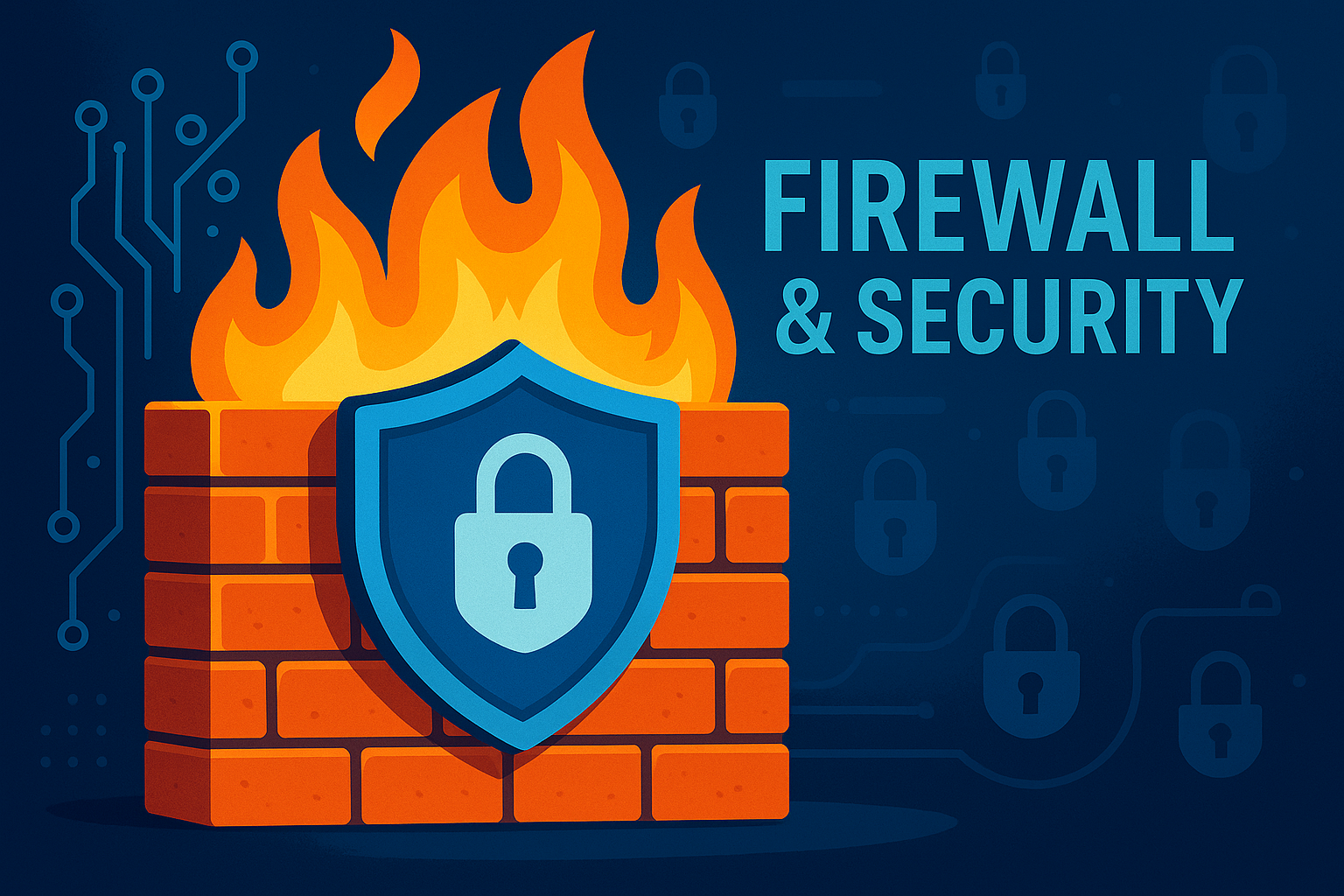
Firewall & Security: Defending Your Digital Fortress in 2025
In today's hyper-connected world, securing your digital infrastructure is no longer optional—it's essential. With cyber threats growing in volume and sophistication, firewalls remain a frontline defense in safeguarding data, devices, and networks. But what exactly is a firewall, and how can you ensure it's working for you and not against you?
Understanding Firewalls: The Cybersecurity Gatekeepers
A firewall is a network security device or software that monitors and controls incoming and outgoing network traffic based on predetermined security rules. Think of it as a digital bouncer—it decides who gets in and who gets blocked based on your security policy.
Firewalls come in various forms:
- Packet-filtering firewalls: The oldest and most basic type, checking packets of data against a set of filters.
- Stateful inspection firewalls: Track the state of active connections and make decisions based on context.
- Next-Generation Firewalls (NGFWs): These include deep packet inspection, intrusion prevention systems (IPS), and application-layer filtering.
- Cloud-based firewalls: Ideal for remote teams and distributed systems, offering scalability and centralized management.
Understanding the type of firewall that suits your organization is the first step in building a robust security posture.
Why Firewalls Still Matter in 2025
With advances in AI, cloud computing, and IoT, the cyber landscape has dramatically evolved—but so have the threats. Firewalls remain vital for several reasons:
- Prevention of Unauthorized Access: Firewalls are the first barrier against hackers, bots, and unauthorized users.
- Data Protection: By monitoring outgoing traffic, firewalls help prevent data leaks and ensure compliance with data protection laws.
- Threat Detection & Alerts: Modern firewalls integrate AI to detect unusual patterns, flag anomalies, and even block zero-day threats in real-time.
- Cost Savings: Breaches are expensive. A strong firewall reduces the likelihood of attacks and associated downtime.
Firewalls are not a silver bullet, but they’re a critical layer in a multi-faceted security strategy.
Choosing the Right Firewall Strategy
When selecting a firewall solution, there’s no one-size-fits-all approach. Here are key considerations:
- Company Size and Infrastructure: Small businesses may benefit from integrated hardware firewalls, while enterprises often need NGFWs or hybrid solutions combining on-prem and cloud firewalls.
- Compliance Requirements: Industries like healthcare, finance, and government have strict regulations that may dictate firewall features.
- Remote Work and BYOD Policies: If employees access systems remotely or use their own devices, cloud-based or endpoint-integrated firewalls are essential.
- Ease of Management: Solutions with centralized dashboards and automation reduce the burden on IT teams and ensure consistent policies.
Before investing, conduct a thorough risk assessment and consult with cybersecurity professionals to align the solution with your business needs.
Conclusion: Build Strong Walls, But Stay Adaptive
Firewalls are foundational in any cybersecurity strategy, but they must evolve with your organization. In 2025, the best protection combines traditional firewall defenses with adaptive AI-driven tools, employee education, and layered security practices. Don’t wait for a breach to take firewall security seriously—make it a priority today and stay one step ahead of tomorrow's threats.